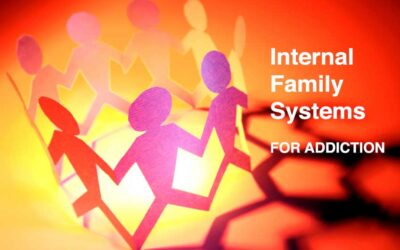Sometimes in life we say things or do things that we later find is wrong. One common response to this is to experience guilt.
Guilt tells us we violated some code of morality or decent behavior and that we need to make up for it, apologize, or receive some kind of punishment.
When guilt works well it acts as a way to right a wrong and helps us repair relationships with people whose wellbeing we care about. Guilt requires empathy and care so to feel guilt is to care about people.
Sometimes, however, guilt becomes excessive. It makes us feel we have transgressed when we are really just being assertive, or it makes us beat ourselves up even though we have already made amends or really aren’t solely responsible or responsible to the extent we feel we are.
In these types of situations it might behoove us to right-size our guilt.
Right-sizing our guilt is a term I take from Cognitive Processing Therapy which is a therapy approach that helps trauma survivors let go of their unfair or unjustified self-blame.
Like Goldilocks, right-sizing our guilt means taking our fair share of responsibility, but just the right amount. We don’t want to ignore our responsibility for some wrong-doing, but we also don’t want to overdo it.
Are You Taking Too Much Responsibility?
Guilt implies responsibility. I should only feel guilty about something if I was responsible for it.
However, responsibility for something is typically not an either/or phenomenon. In the legal system for example, responsibility is determined by looking at an outcome through one of the following three lenses:
#1: The outcome was completely coincidental and random:
Although it might have been unfortunate and bad I was not to blame because I couldn’t really have done much differently.
For example: I am driving down the road and following all the traffic rules but somebody runs out in front of my car out of nowhere and gets hit. This is unfortunate and sad of course but not really my fault.
#2: The outcome was partially due to my recklessness and neglect:
Although I did not intend to cause harm and did not want the outcome to be what it was, there were actions I could have taken to minimize the chances that it would happen or increase the chances that it would not.
For example: I am driving down the road, but am speeding and not paying too much attention because I am on my phone, and then all of a sudden somebody runs out in front of my car and gets hit. This does implicate my responsibility even though all the fault might not be on me but could also be due to the neglect of the other person.
#3: The outcome was intentional on my part:
This is the most clear cut definition of responsibility. I wanted it to happen and deliberately sought to inflict the harm
Right-sizing our guilt means determining where we might fall on this spectrum of responsibility and intent. Are we treating ourselves as if we wanted the outcome to happen or are we taking more responsibility for the outcome than is really ours?
Could the Responsibility Be Shared?
Another question to ask yourself would be: Does a 100% of the responsibility for the outcome fall on you?
Sometimes it does. But oftentimes when we feel guilty, we neglect to consider the contributions other people or circumstances made to producing the unfortunate outcome.
Maybe I said some things I shouldn’t have to my partner, but did my partner play a role as well in getting us to that place?
I am not suggesting we use this as an excuse to gaslight: “I am sorry I hit you but if you kept your promises I wouldn’t have had to.” In this case right-sizing your guilt would mean taking more responsibility for your actions than you really are.
But in many cases the responsibility does legitimately not fully fall on my shoulders.
For example: “I sometimes lash out irrationally because I feel alone and shut out in my relationship. Even though I feel guilty about this and do want to take responsibility for my part, you do tend to ignore me or shut me out when you get angry at me”. This is a frequent dynamic in couples and the responsibility for it does not purely fall on the shoulders of the person who lashes out… It takes two to Tango, as they say…
Could You Feel More Compassion Towards Yourself?
A final question to ask to right-size your guilt, would be: Are you forgetting the context that made you act or say what you did?
Even though you might not want to absolve yourself of a responsibility that rightly belongs to you, you may be forgetting that most people act the way they do because they lack the wisdom they posses now, or were in a different place mentally, emotionally, or relationship-wise than they are now.
To judge yourself from today’s standard may not be showing an adequate amount of understanding or compassion for the situation or the head space you were in at the time.
Even though what happened may still be your responsibility could you begin to forgive yourself for what you didn’t know at the time? Could you begin to forgive yourself for being flawed, naïve, or plain and simple human?
Might it be that even though you now regret your actions you did the best you could at the time given your circumstances?
Do you judge yourself more harshly than you would if a friend came to you and shared your exact life story? Or: Do you judge yourself more harshly than a jury would?
These are all good questions that can help you evaluate if there is perhaps room for a little more compassion towards the person you were when you acted the way you did.
After all, the fact that you feel guilty now means that you have a heart and a general compassion for others so there is obviously something good in you even if you acted in a bad way at the time…
Rightsizing your Guilt: Now What?
Of course now that you have right-sized your guilt so it is neither excessive or minimized, it is time to do what our guilt moves us to do: to apologize or make amends, to see if we can make the person we intentionally or unintentionally caused harm understand that we see the error of our ways and that we have love and care for them which is what our guilt reveals to us.
Whether or not we receive forgiveness from them is not as important as knowing that we acknowledged our wrong-doing to them and did the best we could to make up for the wrong.
The path to forgiving ourselves does not always have to go through the act of another person even though it certainly helps. Self-forgiveness is about righting a wrong and allowing ourselves to move on because we have made amends and have found it within ourselves to forgive the person we were at the time.
This is encouraging because sometimes the person we most want to apologize to is not even alive anymore or part of our life so there really isn’t a way to receive forgiveness in this case unless we receive it from ourselves.
Rightsizing Your Guilt: An Internal Family Systems Approach to Forgiving Yourself
One way to help with forgiving yourself is to engage in a self-forgiveness meditation like the one I have included below. I developed the script for this meditation on the basis of an Internal Family Systems viewpoint, in which we can work with the different parts of us that get implicated when we feel guilty.
Guilt from an internal family systems perspective is not simply a feeling I have, but a feeling that gets produced through the interaction of many different parts of me.
For example, I might have a guilty part that feels remorseful, but this part may be interacting with another part of me that blames me and tells me unkind things about myself, or a part that feels anxious/ worried that I have transgressed and might be “in danger” of retribution because of what I did, or a part that just wants to push my guilt away or forget about it perhaps by drinking or shopping, or becoming a workaholic. Finally I might have developed a callous part of me that has thick skin and has stopped caring about people’s feelings including perhaps even my own as a way to simply not feel my guilt. All of these different parts are really responsible for maintaining my guilt; they are all involved somehow in keeping me stuck in my guilt and being unable to let it go.
To work with the part of me who feels guilty and in the wrong is to ask these many other parts to step away to allow me to relate to that younger version of me through a lens of compassion, rather than judgment, aversion, fear, distaste, indifference and so on…
So with that in mind… Let’s get to it
Meditation Exercise: Understanding and Forgiving Yourself
Meditation script (I use “he/ him” as the personal pronoun but you can of course substitute with the most fitting one):
I want you to think about something you have done that you have regrets about or maybe something you didn’t do that you should have done.
Maybe you did wrong by another person. Maybe you disappointed someone. Maybe you disappointed yourself. Whatever it is try to think of something that you have not yet forgiven yourself for or that you still carry some guilt about…
Now I want you to get an image of yourself at the time when you did whatever it was you did. How old were you? What did you look like? how were you dressed? Where were you? What was going on in your life? What were you going through emotionally at that time? How were you feeling about yourself?
When you think of yourself at this time -notice how you feel about yourself? Not how you felt about yourself at the time but how you feel about that younger version of yourself when you are looking at that person.
Just notice what comes up… Do you feel judgmental of that person? Do you notice a dislike of that person or an impulse to push that person away? Do feel distant? Or maybe anxious?
If you are feeling anything else but compassion and interest, ask whatever protector has a strong feeling towards that younger guilty self to step back, wait outside the room, or give you some space. Then test again how you feel about that younger self.
If you are still not open to it or neutral towards it figure out what other protector might have stepped in and see if you can separate from that part as well
Try to reassure your protective parts that you just want some room to get to know the guilty part not necessarily excuse his or her behavior, just understand it a little bit better…
Now see if you can return to that image of yourself at the time you did whatever you did you are not proud of. See if you can connect with what it was like to be you at that time…
When you did what you did what was reason? Did you want to cause harm to someone or were you just confused, caught up in your own situation, and concerned with your own needs?
Were you a bad person or a person struggling inside, lost in some way, not having the knowledge and wisdom you have today?
Staying attentive to the part of you you have not yet forgiven, ask yourself:
If you could right the wrong, what would you want to do differently?
What would you want to say to the other person?
What would you want the other person to know?
What good feelings do you wish for this other person?
What do you wish they would be able to let go of or forgive you for?
Then let that person know:
May you be safe, may you be happy, may you be healthy, may you find it within you to forgive me when you are ready or when it feels right to you.
If you feel sorry then express that to the person
Let them know exactly what you feel sorry for
What impact you wish you could not have had on them
What you have learned now that you didn’t know then
If there is anything else you would like to say or do to this other person to express your sorrow of the impact you might have had on them go ahead and do that and just notice what that feels like.
Now I want you to return to the guilty part of you:
And just check again how you feel towards that part. If you are not feeling kind or compassionate then ask for some space again from your protective parts
Now from that kind or curious place see if you can get to know more about the pain or suffering you were carrying at the time or the feelings you were dealing with that made you act the way you did… See if you can hear it directly from that person…
Then see if you can begin to feel compassion towards the state you were in, the kinds of things you were dealing with internally, towards the wisdom you didn’t have at the time but have now, towards your limitations as a human being who is ever evolving, always learning, always acquiring more wisdom…
See if you can understand why he might have acted the way he did and how it might be a very human way he dealt with whatever situation he was in – even if his actions were ill advised, hurtful, or harmful
Then let him know what you understand now
If you see him in a slightly different way let him know what you now see
If you are able feel any kind of compassion towards him or humanness in him then let him know that as well
And then see how he responds
Are you willing to forgive him for what he did knowing that forgiving does not mean excusing or condoning, it simply means giving permission to let go of the guilt? To not keep beating yourself up about that which you cannot change
If so go ahead and let him know that. If not that is okay as well, but maybe you can commit to just keeping the lines of communication open
And when you are ready… bid this younger version of yourself goodbye for now and say whatever parting words to him that feels appropriate and true.
When it feels right, gently redirect your consciousness to the present moment, feel yourself in your chair, and orient yourself to the room
And there you go… Hopefully you were able to experience a slight change in how you view the situation and view yourself by going through this exercise.

About Me: I am Dr. Rune Moelbak, a psychologist in Houston Texas. I am a blog writer, therapist, and couples counselor.







